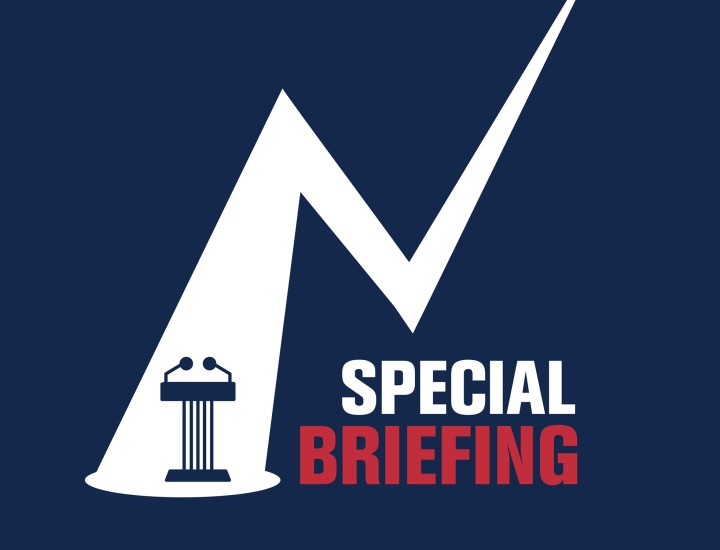Richard Ravitch’s legacy as a watchdog for sustainable state and local finance
This article was originally published by the NJ Spotlight on July 6, 2023.
I first met Dick Ravitch, who died at the age of 89 on June 27, when, as an editor at Bloomberg News in New York, I was managing coverage of states and localities in the wake of the Great Recession of 2007-09. From coast to coast, budgets were under tremendous stress. As revenues shrank, many governments — including New Jersey’s — were finding it difficult to balance their budgets without resorting to borrowing, underfunding pensions and infrastructure, and using other fiscal maneuvers to kick the cost of current public services down the interstate for future generations to pay.
This unsustainable situation both enraged and engaged Dick, for whom fiscal responsibility by states and cities had become a noble preoccupation for the latter half of his life. A builder of office towers and affordable housing turned public servant as head of New York State’s Urban Development Corporation, Dick was a central player in the bailout and restructuring of the finances of New York City, which in 1975 found itself minutes away from bankruptcy when it lost its ability to borrow to pay its bills. Four years later, as a reward for his success, Dick was tapped by New York’s former Gov. Hugh Carey to rebuild the city’s decrepit subways.
Those Herculean challenges only whetted Dick’s appetite for repeatedly challenging ruinous fiscal practices by cities and states. So, when Dick saw history repeating itself in many states during and after the Great Recession, he was again moved to act. Along with his longtime buddy and office mate, former Federal Reserve Chairman Paul Volcker, Dick in 2011 launched the State Budget Crisis Task Force to explore what could be done to push states back to a path of fiscal rectitude. While the task force’s research and findings covered all of the U.S. states, it gave special attention to six — including New Jersey. In 2012, it slammed the Garden State’s years of balancing budgets by, among other things, borrowing to cover revenue shortfalls; reducing infrastructure investment; declining to contribute $17 billion to public employee pensions and emptying the government’s rainy day fund.
“New Jersey has struggled to balance its budget for most of the past two decades,” the task force concluded in its report on the state, whose heavy reliance on nonrecurring resources “led to structurally unbalanced budgets in which current revenues do not support continuing spending commitments.
“This pushes difficult budget choices off to future years,” the task force warned, “and is ultimately unsustainable.”
It took several more years — and a decade of national economic recovery — for the message to sink in. After the task force completed its work, Dick joined Paul again in 2013 in helping to create the Volcker Alliance, a nonprofit dedicated to advancing the former Fed chief’s longtime vision of an empowered public sector workforce.
Not long after, over lunch at a café across from their Rockefeller Center offices, Dick convinced me to join the alliance and develop a public finance arm to continue his campaign for state and local fiscal stability. This led to the creation of “Truth and Integrity in State Budgeting,” a multiyear study that graded all 50 states in 2015-19 on the transparency and sustainability of their budgetary practices in five fundamental categories. At the 2017 press conference announcing the publication of the first study in the series, Dick held forth on the weaknesses of state and municipal accounting that had tempted many state and local politicians to “continue to use borrowed money to cover operating expenses.”
New Jersey did not fare well in the Truth and Integrity reports, with its budget report cards ranking the state among the lowest in America. However, their critiques of New Jersey, on top of the task force’s earlier assessment, were taken to heart by Gov. Phil Murphy after he took office in 2018. Murphy, a longtime admirer of Dick and Paul, paid particular heed to the calls by the alliance and task force to bolster pension funding and rainy day fund reserves.
While the state — along with every other — faced a period of deep fiscal uncertainty when the COVID-19 pandemic shuttered the U.S. economy in 2020, the retreat of COVID-19, unprecedented federal aid, and strong rebound in economic activity and tax revenues allowed New Jersey to focus once again on shoring up its fiscal base by focusing on reducing its massive debts. The efforts have been rewarded with seven credit-rating upgrades since 2022, which Murphy recently saw as a fitting Ravitch legacy.
“The feeling that New Jersey has begun to punch above its weight again is due in no small measure to Dick,” Murphy told the congregation at his funeral at Central Synagogue in Manhattan on June 28.
To me, Dick was a wonderful advocate, supporter, mentor and friend in the more than a decade that I knew him and worked at his side. We will continue his work at the Volcker Alliance, through advocacy of sustainable budgeting and via the recently launched Richard Ravitch Public Finance Initiative, which seeks to catalyze federal action to improve state and local budget practices that present looming risks to the federal system and economy. His devotion to public service and positive change will inspire us all for years to come.
Glasgall is Senior Director, Public Finance, at the Volcker Alliance, a nonpartisan 501(c)3 nonprofit.

